This post is part of a virtual book tour organized by Goddess Fish Promotions. Katie Groom will be awarding a $10 Amazon or Barnes and Noble GC to a randomly drawn winner via rafflecopter during the tour. Click on the tour banner to see the other stops on the tour.
I’m a time traveling writer.
I never write in order. My characters probably feel as if they are in one of those reverse bungee slingshot rides at the carnival, bouncing all around every which way, in the abyss that is my brain.
I do not start with a scene that’s at the beginning or the end — in the off chance that it does end up that way, it’s because I’ve discovered that I need to stop there and move on to another book in the series after writing all of the other scenes. I pick one that is somewhere in the middle that calls to me, and I write in a random pattern around that. Sometimes the scene that I start with never even makes it into the book. The very first thing that I wrote for Fixed Moon took place in London and was based on a real-life date that I had there — this never made it into the book.
As I write more, I also go back and edit what I’ve already written, so my characters have to revisit what they just went through yesterday or the day before, and sometimes it changes — just like memories sometimes gain a new light as one ages and experiences new things. Sometimes they become more vivid. More gruesome. And, rarely, they become happier.
There have been times where I’ve written something in Hugh’s point of view and had to re-write it in Zoie’s — and that throws them for a loop even more because it’s as if they’ve invaded each other’s memories. They get a taste of what the other is going through — even though they aren’t supposed to know.
What’s even worse is when I write something for the story I’m working on at the time, but it doesn’t work, so I pull it out and save it in my “bits and pieces” folder only to have a story completely unrelated utilize it. Imagine those characters as they find themselves placed into a stranger’s memory. It’s like dropping the little figure into Google maps and just walking around, trying to find the nearest airport, as if it was the latest social media challenge.
But the characters do fight back a little. I’ve written a scene about Hugh, and I didn’t like the decision he was making. I deleted it and started over, changing things but still getting us to that crossroad. He made the same choice again. And a third time. And a fourth. So, on the fifth time, I let that be the way that the chips fell.
Somehow the stories all fall together, and I swear that it’s some sort of witchcraft. It somehow starts as a group of scenes all tied together by the worked ELEPHANT (font sized 60; note: I use “elephant” so that I can quickly search and find all of the spots with missing pieces — unless, of course, I’m writing about elephants), but it finds its way to a cohesive story. When all is said and done, the characters will get to live their stories in order every time the book is opened by a new reader, without getting jostled around on a slingshot carnival ride.
After breaking her engagement and traveling 800 miles to start her life over, literature student Zoie is ready to live her life within the books she reads and the worlds she creates on the page. She will live her life solo — only her stuffed animal Judy by her side.
Werewolf and literature professor Hugh has long been wary of letting people into his life, even for someone who’s almost 200. His life in Birmingham, Alabama, and his only two friends in the world are enough to keep him content. Not happy, but as near as he figures is possible.
Neither is ready for the literal sparks that fly when they meet. But Hugh knows those sparks mean his heart belongs to Zoie, whether she wants it or not. Desperate to prove he’s worthy of her, Hugh takes Zoie to places mortals are forbidden, drawing dangerous attention to them both.
Now, together with their closest friends, Hugh and Zoie fight against ancient foes and even more ancient laws for their lives and their love.
Enjoy an Excerpt
Stevie placed her hands in front of her as if she was holding a big beach ball and closed her eyes. The boat shook ever so slightly and then the water started to rise above the sides of the boat.
Terrified that they were going to take on water, Zoie latched onto Hugh’s arm. She watched as either the water continued to rise above the boat or, maybe, the boat was sinking below the water.
As the water arched over their heads and created a ceiling, a fish fell at their feet. “Do I release it back or will that be an issue?” Zoie picked it up and waited for the signal — a nod from Stevie. Then she tossed it back towards the wall of water before it wiggled out of her hands.
The boat travelled further down into the depths of the ocean, slowly at first — as Stevie gauged Zoie’s potential reaction to increased pressure around the boat. The water grew a darker and darker blue until the only light was what was held in their own bubble.
Zoie was standing at the edge of the boat, holding the railing, when she saw a small light. She leaned forward to get a better look. Squinting her eyes, she tried to make out what was holding the light. She leaned further forward only to be inches from the wall of water — and inches from many rows of giant, pointy teeth.
Jumping back, she gasped and placed her hand over her mouth.
About the Author: Katie Groom grew up in rural Pennsylvania, where she received her bachelor’s degree in Business Management from PITT and her master’s in Employment and Labor Relations from Indiana University of Pennsylvania. In 2016, she decided to move to Alabama in order to avoid as much snow as possible (and to advance her career in Human Resources).
Katie Groom grew up in rural Pennsylvania, where she received her bachelor’s degree in Business Management from PITT and her master’s in Employment and Labor Relations from Indiana University of Pennsylvania. In 2016, she decided to move to Alabama in order to avoid as much snow as possible (and to advance her career in Human Resources).
When she isn’t working, Katie enjoys reading, writing, jokingly critiquing movies and TV, and campaigning that the plural of moose should be meese. She also loves to take in live music (especially Hanson) and traveling, with the goal of reaching each of the continents. Katie’s favorite pastime, however, is spending time with her beloved Shih tzu, Delta.
Buy the book at Cinnabar Moth or Amazon.


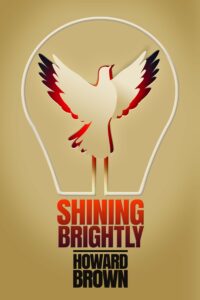 In Shining Brightly, Silicon Valley pioneer, cancer survivor and interfaith peacemaker Howard Brown shares keys to resilience for successful entrepreneurs, patient advocates and community leaders. He shows us how to reach out through our families, our communities and around the world to form truly supportive connections and friendships. From Howard’s career as a Silicon Valley entrepreneur, to his conquering metastatic stage IV cancer twice, to his compassionate outreach as a peacemaker, to his love of sports—this ultimately is not one man’s story. Shining Brightly is a story shared by countless men and women—and may wind up changing your life as well. With each true story he tells in the pages, Howard invites readers to picture how they might join him in shining more light in our world.
In Shining Brightly, Silicon Valley pioneer, cancer survivor and interfaith peacemaker Howard Brown shares keys to resilience for successful entrepreneurs, patient advocates and community leaders. He shows us how to reach out through our families, our communities and around the world to form truly supportive connections and friendships. From Howard’s career as a Silicon Valley entrepreneur, to his conquering metastatic stage IV cancer twice, to his compassionate outreach as a peacemaker, to his love of sports—this ultimately is not one man’s story. Shining Brightly is a story shared by countless men and women—and may wind up changing your life as well. With each true story he tells in the pages, Howard invites readers to picture how they might join him in shining more light in our world. Howard Brown is an author, Silicon Valley entrepreneur, interfaith peacemaker, two-time stage IV cancer survivor and healthcare advocate. For more than three decades, Howard’s business innovations, leadership principles, mentoring and his resilience in beating cancer against long odds have made him a sought-after speaker and consultant for businesses, nonprofits, congregations, and community groups. In his business career, Howard was a pioneer in helping to launch a series of technology startups before he co-founded two social networks that were the first to connect religious communities around the world. He served his alma matter—Babson College, ranked by US News as the nation’s top college for entrepreneurship—as a trustee and president of Babson’s worldwide alumni network. His hard-earned wisdom about resilience after beating cancer twice has led him to become a nationally known patient advocate and “cancer whisperer” to many families. Visit Howard at ShiningBrightly.com to learn more about his ongoing work and contact him. Through that website, you also will find resources to help you shine brightly in your own corner of the world. Howard, his wife Lisa and daughter Emily currently reside in Michigan.
Howard Brown is an author, Silicon Valley entrepreneur, interfaith peacemaker, two-time stage IV cancer survivor and healthcare advocate. For more than three decades, Howard’s business innovations, leadership principles, mentoring and his resilience in beating cancer against long odds have made him a sought-after speaker and consultant for businesses, nonprofits, congregations, and community groups. In his business career, Howard was a pioneer in helping to launch a series of technology startups before he co-founded two social networks that were the first to connect religious communities around the world. He served his alma matter—Babson College, ranked by US News as the nation’s top college for entrepreneurship—as a trustee and president of Babson’s worldwide alumni network. His hard-earned wisdom about resilience after beating cancer twice has led him to become a nationally known patient advocate and “cancer whisperer” to many families. Visit Howard at ShiningBrightly.com to learn more about his ongoing work and contact him. Through that website, you also will find resources to help you shine brightly in your own corner of the world. Howard, his wife Lisa and daughter Emily currently reside in Michigan.


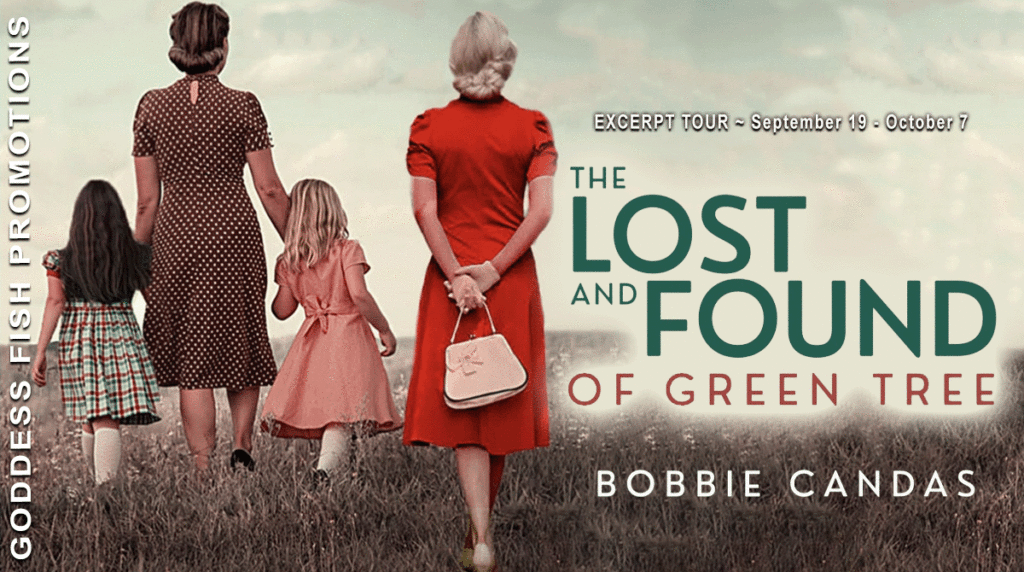
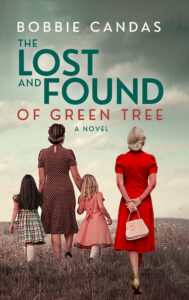 Both heart-warming and gut-wrenching, the merging stories of Mariah and Nanette reveal their grit and determination as they attempt to carve out a better life for themselves during one the twentieth century’s most arduous decades.
Both heart-warming and gut-wrenching, the merging stories of Mariah and Nanette reveal their grit and determination as they attempt to carve out a better life for themselves during one the twentieth century’s most arduous decades.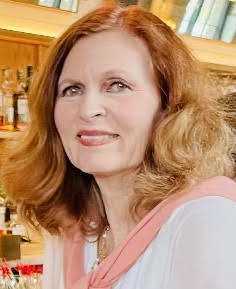 I’m a Texas girl: grew up in San Antonio, went to school at UT in Austin where I earned my degree in journalism, and settled in Dallas where I raised a husband, two kids and a few cats. My husband, Mehmet, and the cats will probably disagree on who raised who, but I’m a sucker for a robust discussion.
I’m a Texas girl: grew up in San Antonio, went to school at UT in Austin where I earned my degree in journalism, and settled in Dallas where I raised a husband, two kids and a few cats. My husband, Mehmet, and the cats will probably disagree on who raised who, but I’m a sucker for a robust discussion. 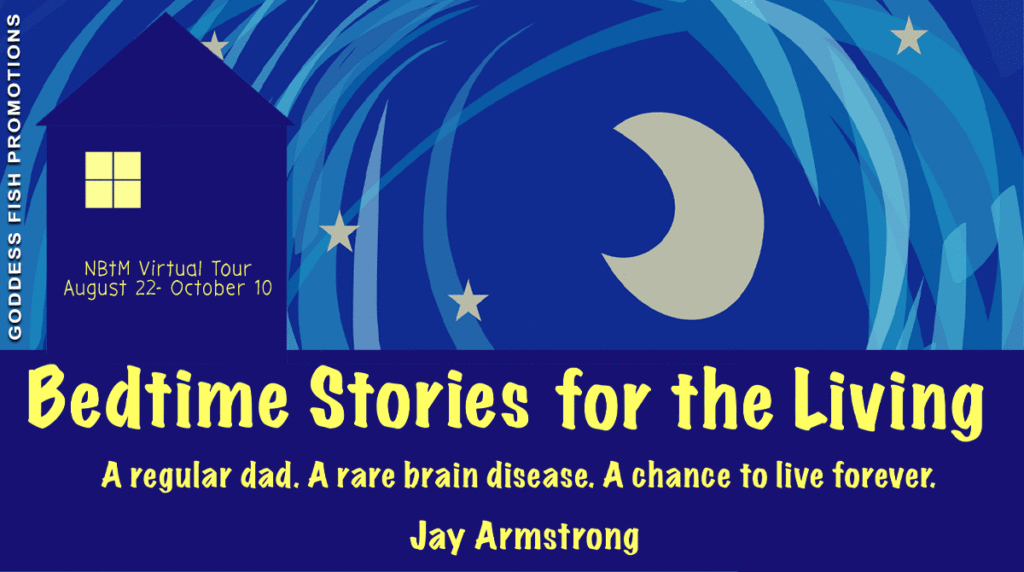
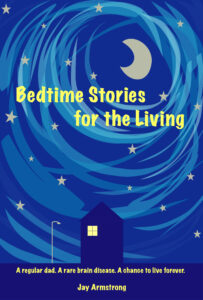 Diagnosed with a progressive brain disease, a young father is determined to teach his children the importance of pursuing their dreams.
Diagnosed with a progressive brain disease, a young father is determined to teach his children the importance of pursuing their dreams. 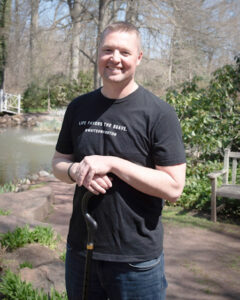 In 2013, Jay Armstrong was diagnosed with diffuse cerebellar atrophy. A condition that causes dysfunctional motor skills, speech and vision impairments, and balance deficiencies. At the time of diagnosis, he was establishing himself as an endeared high school English teacher, a varsity soccer coach, and an above average dancer. However, the progressive disorder forced Jay to reevaluate his life.
In 2013, Jay Armstrong was diagnosed with diffuse cerebellar atrophy. A condition that causes dysfunctional motor skills, speech and vision impairments, and balance deficiencies. At the time of diagnosis, he was establishing himself as an endeared high school English teacher, a varsity soccer coach, and an above average dancer. However, the progressive disorder forced Jay to reevaluate his life. 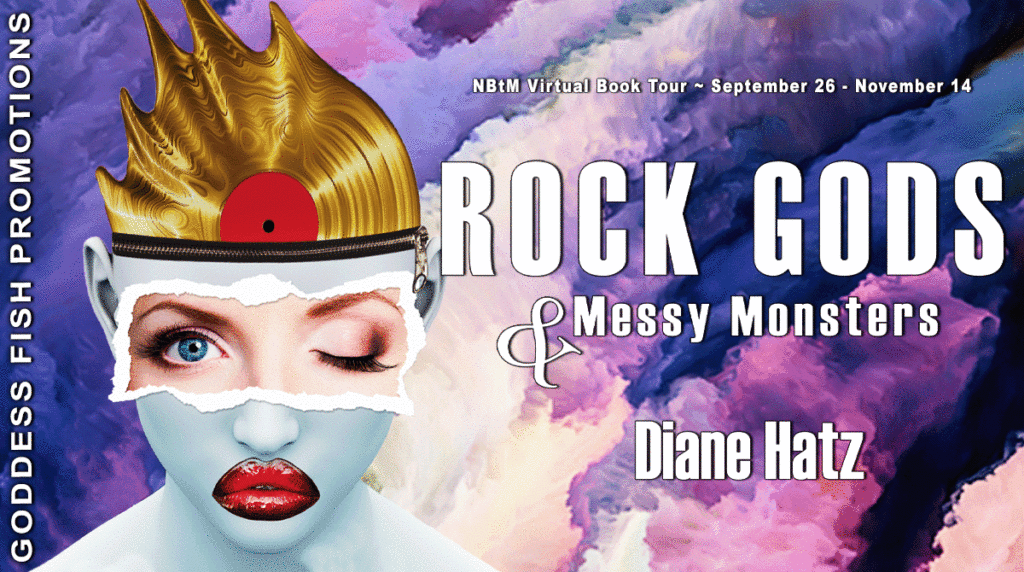
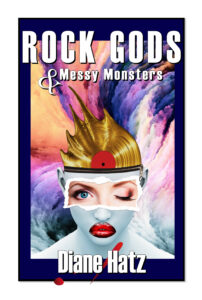 Rock Gods & Messy Monsters is one woman’s search for herself among the blood-soaked walls, dangling body parts, and alien-hatched explosions inside Acht Records.
Rock Gods & Messy Monsters is one woman’s search for herself among the blood-soaked walls, dangling body parts, and alien-hatched explosions inside Acht Records.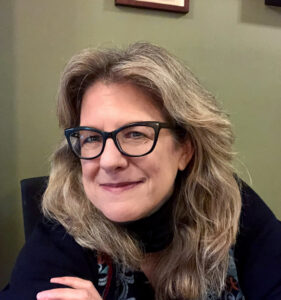 Diane Hatz worked at major and indie record companies, managed a band, and freelanced as a music publicist. She is co-founder of The Relay, a fanzine on The Who, which is in the Rock and Roll Hall of Fame. She’s attended thousands of concerts.
Diane Hatz worked at major and indie record companies, managed a band, and freelanced as a music publicist. She is co-founder of The Relay, a fanzine on The Who, which is in the Rock and Roll Hall of Fame. She’s attended thousands of concerts.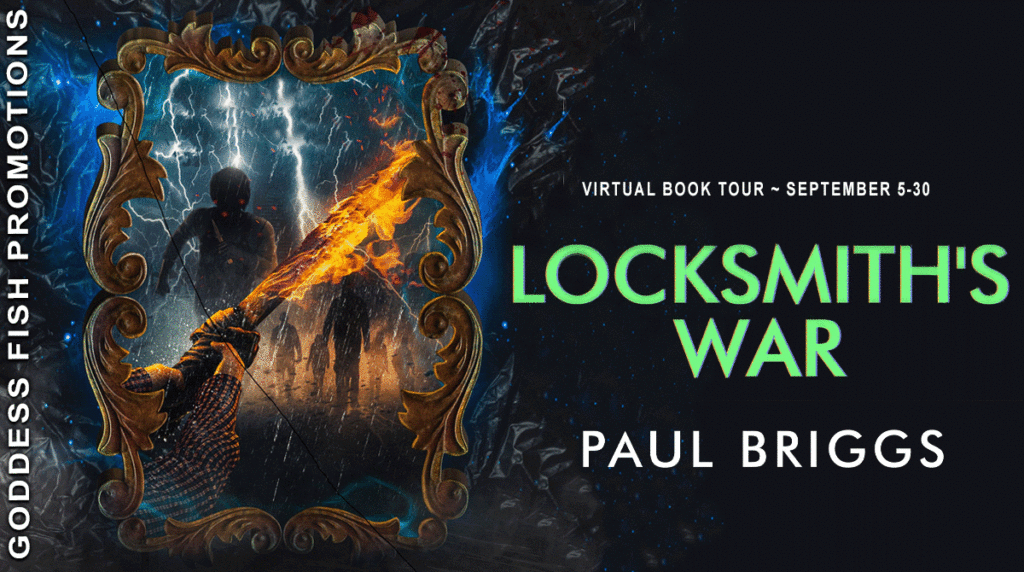
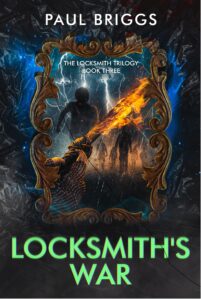 For Lachlan Smith, learning the secret of the apocalypse was the easy part.
For Lachlan Smith, learning the secret of the apocalypse was the easy part.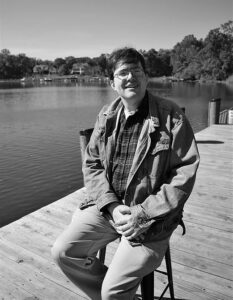 In addition to writing books, Paul Briggs has worked as a newspaper editor, court reporter’s assistant, and audio transcriber. In his spare time (when he has any) he sometimes performs in community theater, most recently taking on the roles of Bottom, Petruchio, Macbeth, Rosalind, and Richard III in a Shakespeare compilation. An Eastern Shore native who grew up in Chestertown, Maryland, Paul earned a BA in English from Washington College and a master’s degree in journalism from the University of Maryland – College Park.
In addition to writing books, Paul Briggs has worked as a newspaper editor, court reporter’s assistant, and audio transcriber. In his spare time (when he has any) he sometimes performs in community theater, most recently taking on the roles of Bottom, Petruchio, Macbeth, Rosalind, and Richard III in a Shakespeare compilation. An Eastern Shore native who grew up in Chestertown, Maryland, Paul earned a BA in English from Washington College and a master’s degree in journalism from the University of Maryland – College Park. 


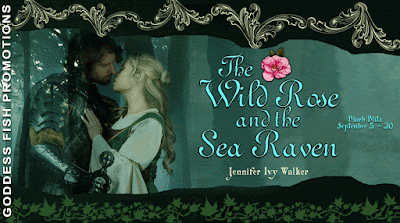


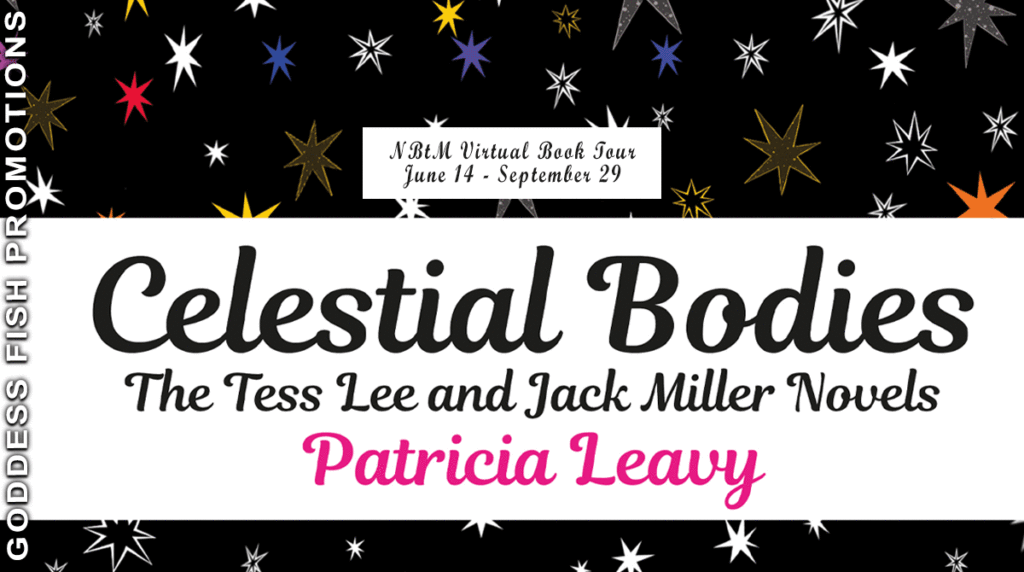
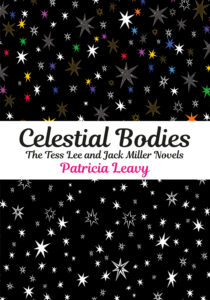 Heart-warming and wonderfully romantic, written with the sharp wit of Candace Bushnell and the sensitivity of Meg Donahue, comes best-selling author Patricia Leavy’s tour de force about learning to balance darkness and light in our lives.
Heart-warming and wonderfully romantic, written with the sharp wit of Candace Bushnell and the sensitivity of Meg Donahue, comes best-selling author Patricia Leavy’s tour de force about learning to balance darkness and light in our lives.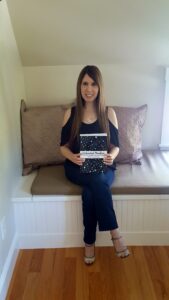 Patricia Leavy, Ph.D., is a bestselling author. She was formerly Associate Professor of Sociology, Chair of Sociology and Criminology, and Founding Director of Gender Studies at Stonehill College in Massachusetts. She has published over thirty-five books, earning commercial and critical success in both fiction and nonfiction, and her work has been translated into many languages. Patricia has received dozens of accolades for her books. Recently, her novel Shooting Stars won the 2021 Independent Press Award Distinguished Favorite Contemporary Novel, her novel Film won the 2020 American Fiction Award for Inspirational Fiction, the 2021 NYC Big Book Award for Chick-Lit, and the 2021 Independent Press Award Distinguished Favorite Chick-Lit, her 3-novel set Candy Floss Collection won the 2020 American Fiction Award for Anthologies and the 2021 NYC Big Book Award for Anthology, and her novel Spark won the 2019 American Fiction Award for Inspirational Fiction, the 2019 Living Now Book Award for Adventure Fiction, and the 2021 National Indie Excellence Award for New Adult Fiction. She has also received career awards from the New England Sociological Association, the American Creativity Association, the American Educational Research Association, the International Congress of Qualitative Inquiry, and the National Art Education Association. In 2016 Mogul, a global women’s empowerment network, named her an “Influencer.” In 2018, she was honored by the National Women’s Hall of Fame and SUNY-New Paltz established the “Patricia Leavy Award for Art and Social Justice.” She lives in Maine with her husband, daughter (when she’s not away at college), and her dog. Patricia loves writing, reading, watching films, and traveling.
Patricia Leavy, Ph.D., is a bestselling author. She was formerly Associate Professor of Sociology, Chair of Sociology and Criminology, and Founding Director of Gender Studies at Stonehill College in Massachusetts. She has published over thirty-five books, earning commercial and critical success in both fiction and nonfiction, and her work has been translated into many languages. Patricia has received dozens of accolades for her books. Recently, her novel Shooting Stars won the 2021 Independent Press Award Distinguished Favorite Contemporary Novel, her novel Film won the 2020 American Fiction Award for Inspirational Fiction, the 2021 NYC Big Book Award for Chick-Lit, and the 2021 Independent Press Award Distinguished Favorite Chick-Lit, her 3-novel set Candy Floss Collection won the 2020 American Fiction Award for Anthologies and the 2021 NYC Big Book Award for Anthology, and her novel Spark won the 2019 American Fiction Award for Inspirational Fiction, the 2019 Living Now Book Award for Adventure Fiction, and the 2021 National Indie Excellence Award for New Adult Fiction. She has also received career awards from the New England Sociological Association, the American Creativity Association, the American Educational Research Association, the International Congress of Qualitative Inquiry, and the National Art Education Association. In 2016 Mogul, a global women’s empowerment network, named her an “Influencer.” In 2018, she was honored by the National Women’s Hall of Fame and SUNY-New Paltz established the “Patricia Leavy Award for Art and Social Justice.” She lives in Maine with her husband, daughter (when she’s not away at college), and her dog. Patricia loves writing, reading, watching films, and traveling.





















